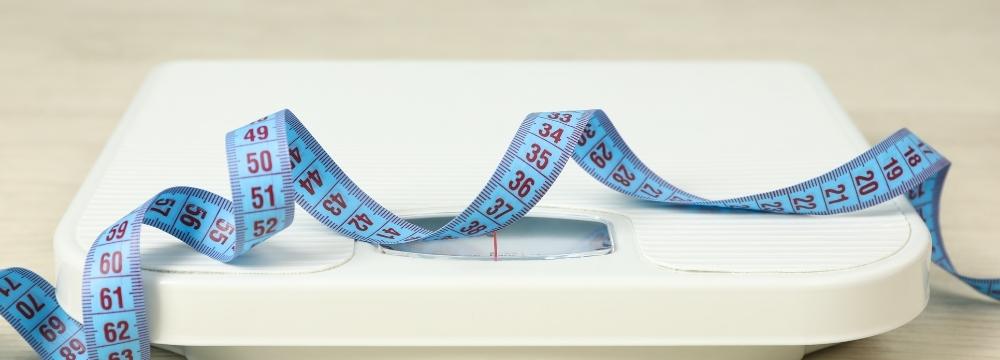
The weight loss process is a lifelong fight against the chronic disease of obesity. It is a fight you must take on every day yet it’s easy to go off-track. As such, you need to give yourself the best odds to overcome your weight, minimize the risks of relapse into old habits, and give yourself the tools to fight each day. We discuss a lot about diet and exercise advice to stay on track, and there’s a good reason for this. Making these simple changes can be the difference between good and great results.
However, we want to see these habits become second nature so that you don’t even think about putting yourself in a situation that may compromise your weight loss progress. With that said, several small lifestyle changes, some seemingly unrelated to bariatric surgery, can make a big difference in your long-term success. Let’s discuss them and find out why ignoring them increases the risk of going backward.
Setting Expectations Too High
If you are freshly out of surgery, congratulations. You have achieved enormous success. Not only was it brave to seek help, but while you had a clinical team by your side during treatment, you still had to make the physical and emotional sacrifices to get you through it successfully. You may feel a renewed lust for life and a desire to make up for lost time, and there is certainly nothing wrong with that. There’s nothing better than getting our lives back on track after the immense challenges that excess weight can cause.
However, many patients set their expectations too high. Yes, you may be in a better physical and mental place than you have been in months or even years, but that doesn’t mean reality has changed. It’s hard to achieve great things in your life, and these things take time, even with weight loss. This does not mean you cannot achieve extraordinary things. This does not mean you cannot succeed. Just give yourself the time and grace to make it happen.
You may struggle a bit as you move into “regular” life. These struggles are normal, and they are most certainly not linear. You will be faced with ups and downs. The key is to remember that on the other side of these sacrifices is what you want. Getting there requires putting time and effort in. You must also figure out ways to enjoy the weight loss and lifestyle transformation process. Take a moment each day to enjoy the small victories. Did you get a job interview today? If so, that’s an outstanding achievement. Did blood work come back unexpectedly positive? Did someone pay you a compliment?
Not only that but take what may seem like failures (a pound or two gained, a diet miss, or a bad day at the gym) and reframe them as opportunities to improve yourself and your care plan. Getting better doesn’t happen overnight; even the best of us is never perfect.
Not Getting Enough Sleep
Not getting enough sleep has far-reaching effects on the body and mind. You may think back to the days when your lifestyle was very different, and your sleep was not great. Why did you feel so run-down physically and emotionally, day in and day out? Sleep is not just a regenerating medicine for your body but also for your mind. Your brain processes an incredible amount of information daily and needs an outlet to download and parse through it. Sleep is that outlet. You may have heard the old saying, “I’ll sleep when I’m dead,” but what that doesn’t consider is the fact that lack of sleep does have life-shortening effects.
You may not be able to sleep well early on. This is perfectly normal. However, the sleep aids you may have turned to in a previous life should not be taken in this new phase. Sleep hygiene, therefore, becomes crucial. Several tried and true sleep tactics not only help you get enough sleep but also improve the quality of sleep so that you tackle your days with the vigor and clarity necessary to push ahead.
First, ensure the room in which you sleep is suited to a good night’s rest. That means the temperature should be somewhere in the low 70s, depending on your preference. It should be dark with no ambient light, not even a nightlight. And it should be quiet. This means it’s best not to fall asleep to TV or podcasts unless they are specifically made to help you sleep –like meditation.
Your bedroom routine also helps tremendously. Try to get to bed at the same time every night and follow your natural circadian rhythms. There is some truth to certain people being night owls while others are early birds. We don’t all need to go to sleep simultaneously, and you can look for sleep cues in the evening to see where you fall on the spectrum. Figure out when your body is ready for bed and stick to that timing day in and day out. Waking up at the same time each day is also essential, including on weekends.
What you do before bed makes a big difference too. Don’t underestimate the beneficial effects of a hot shower in the hour or so leading up to bed. Intimacy with a partner with whom you have a healthy relationship can also improve your sleep.
Sleep aids are a double-edged sword. While many options exist that do not include addictive properties, our goal is ultimately to get to bed without the need for foreign substances. Try substituting pills or even melatonin with herbal teas, calming music, and putting the phone away well before bedtime.
Lastly, speak to your primary care physician or our office about the possibility of a sleep disorder. These are more common than you think, especially in the overweight population, and manifest in several ways. If you carry excess weight, you may suffer from acid reflux or even sleep apnea, which can dramatically reduce the quality and quantity of sleep. You may think that loud snoring or that burning in your chest is normal because you’ve experienced it for so long, but they’re not, and both are treatable.
Not Asking For Help
If you learned one thing from this process, it’s that asking for help can be the best decision you ever make in many cases. Now, especially after bariatric surgery, you may want to go it alone. You may want to make up for lost time. You may not want to rely on the friends and family you care about most because you don’t want to inconvenience them. But remember, for the most part, people are more than happy to help, especially when they know they are making a difference in your life. Consider having a frank and open conversation with friends and family closest to you to set expectations on both sides.
Not Performing Weight Bearing Exercises
Too many bariatric patients make a beeline for the cardio machines because it feels good to break a sweat and get the heart rate up. However, they often do so while ignoring lifting weights or using bodyweight exercises to build muscle. While cardio is undoubtedly good for you, it can’t be the only exercise you perform. Building muscle allows you to burn more calories at rest which necessarily means better long-term weight loss results and an easier time maintaining them. You may be upset when you weigh yourself after your first several weightlifting days. You may see the scale creep up with muscle being heavier than fat. This is temporary. Remember, you are looking for long-term results, not just for the next few days.
Of course, no matter what you do, we are available to help and advise if you are ever in doubt about lifestyle changes or habits that you should or shouldn’t have. Remember that good habits and anything to improve your overall health benefit your weight loss program and longer-term lifestyle changes. We look forward to seeing your successes on your next visit.










